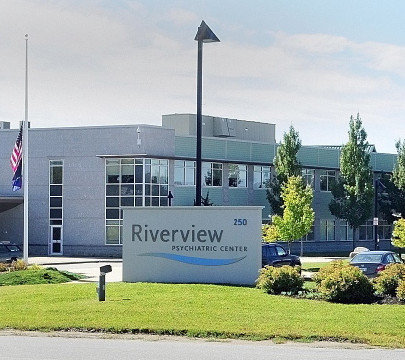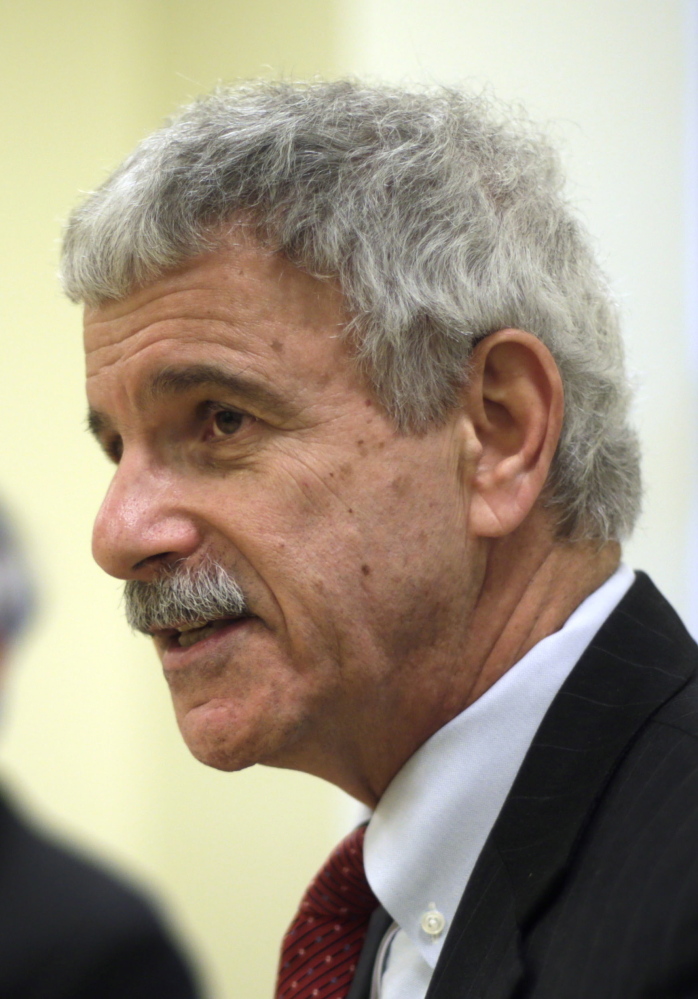AUGUSTA — Local legislators said Wednesday they have been repeatedly rebuffed by the state when seeking information about a proposed 21-bed, privately run rehabilitation facility for criminal patients that would be built next to Riverview Psychiatric Center.
Sen. Roger Katz, R-Augusta, said he and three other Augusta legislators have been trying for more than a month to have the state Department of Health and Human Services brief them and city officials about the project.
“We’ve contacted the department on three separate occasions to set up a meeting and been told, three times, the department declines to do it,” Katz said. “Presumably we all want the same thing, which is to have humane, effective treatment for the seriously mentally ill done in a cost-effective way. I just don’t understand why the administration views the community and its representatives as adversaries here.”
The Augusta Planning Board on Tuesday tabled action on the state’s request for a development permit for the project until its October meeting, following a public hearing in which board members cited similar concerns. A state consultant refused to answer questions about the project, who would be placed there or what kind of treatment or security would be provided.
Board members were unclear whether the facility will be a hospital or a correctional facility – a correctional facility would undergo more thorough review and have to meet higher neighborhood compatibility standards.
“It sounds like you need somebody from the state that can describe exactly what’s going to occur inside this facility, so you can decide if it meets the definition of a hospital,” said city Development Director Matt Nazar.
The proposal is part of a state Department of Health and Human Services effort to regain federal certification for Riverview and the $20 million in annual federal funding reimbursement that comes with it.
The federal agency that oversees Riverview funding revoked the hospital’s certification about two years ago after regulators found many problems during an audit, including the use of pepper spray, stun guns and handcuffs on patients.
In August 2015, DHHS Commissioner Mary Mayhew said creating a separate treatment facility for forensic patients – those with mental illness who have committed crimes – might be the only way to regain that certification.
LITTLE INFORMATION
DHHS spokeswoman Samantha Edwards said Wednesday the facility is neither a hospital nor a correctional facility.
“It is a secure forensic rehabilitation facility,” she said by email. “It is a residential group setting for those forensic patients placed in the custody of the DHHS commissioner by the courts who the courts have not allowed back into the community as of yet. These individuals, however, no longer need a hospital level of care.”
Edwards was noncommittal when asked if the DHHS would respond to the Planning Board’s request for more information at the October meeting.
Asked if the department planned to meet with Augusta legislators, Edwards said the department has already discussed Riverview operations and specific proposals for new facilities with the Legislature.
Katz said the Augusta delegation – Katz and Reps. Matt Pouliot, R-Augusta; Donna Doore, D-Augusta; and Lori Fowle, D-Vassalboro – received a written response from the department’s legislative liaison that “said basically they think we’ve got all the information we need. Which is baffling.”
Fowle said some constituents, including Rivervew staff, are concerned about the proposal. “I’d like to know what, exactly, they’re proposing,” she said. “It’s hard to tell if it’s a good proposal or a poor proposal if you don’t know anything about it.”
DHHS officials have said the facility will be privately run.
Katz said he wouldn’t necessarily oppose such a switch, but it needs to be discussed first. “It might be the greatest idea ever, but there are a lot of questions to be answered. It’s a big deal for Riverview and a big deal for the city,” he said. “There ought to be full and complete transparency, and to date the response has been ‘no, no, no.’ ”
Katz said unanswered questions include:
• how a private provider would be selected;
• how would transferring patients from Riverview to the new facility affect Riverview;
• how would the project be funded;
• how will the new facility fit the state’s overall plan for treating people with mental illness.
Edwards said funding for the project, which officials estimated will cost between $3 million and $5 million, would come from “available funds that the Legislature has appropriated specifically for serving mentally ill individuals who need care.”
SECURITY QUESTIONS
Katz also said legislators have questions about security. Consultant Dave Nadeau told Planning Board members the building would be locked, would have a 14-foot-high fence topped by razor wire around its recreation area, but would not be a “high security” building.
“I remember when Sharon Taylor was murdered in the arboretum by a patient from (the former Augusta Mental Health Institute),” said board member A. Delaine Nye. “So my concern is the level of security. I’d feel better if you could say, ‘yes ma’am, it’s a high security unit.’ ”
Taylor was a Cony High School freshman in 1985 when she was killed by Paul Addington in the former Pine Tree State Arboretum across the street from the former Augusta Mental Health Institute complex. Addington was living in a halfway house at the institute at the time, according to trial testimony. He was sentenced to life in prison.
Edwards responded via email Wednesday: “The facility would have the appropriate security to ensure that forensic patients under the care of the commissioner are safe and able to complete their planned treatment and rehabilitation effectively. There are extensive building details, including security features, included in the application presented at Tuesday’s board meeting.”
Send questions/comments to the editors.





Comments are no longer available on this story